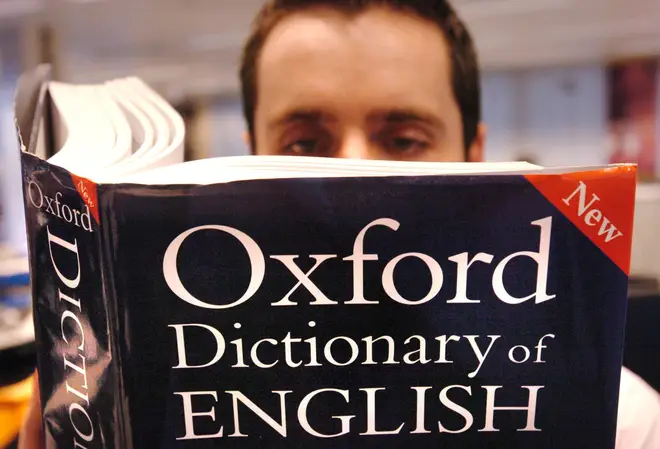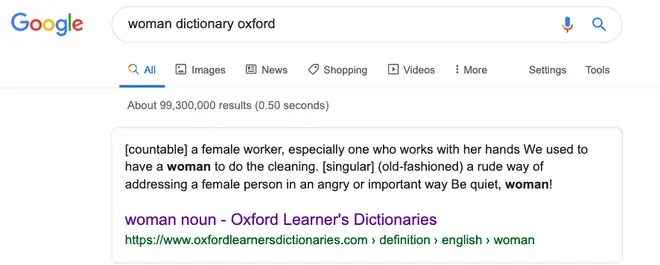
Jim Diamond 1am - 4am
18 September 2019, 12:05

A petition calling on Oxford University Press to change the “sexist” definitions of the word woman in some dictionaries has been signed by 30,000 people.
The petition, signed by almost 30,000 people says: "Have you ever searched online for the definition of a woman? 'Bitch, besom, piece, bit, mare, baggage, wench, petticoat, frail, bird, bint, biddy, filly'.
"These are the words which the Oxford's English Dictionary online tells us mean the same as ‘woman’. This sexist dictionary must change."
The petition cites the following examples that the Oxford's English Dictionary gives as the definition of ‘woman’:
- ‘Ms September will embody the professional, intelligent yet sexy career woman’
- ‘If that does not work, they can become women of the streets’
- ‘Male fisherfolk who take their catch home for the little woman to gut’
- ‘I told you to be home when I get home, little woman’
Maria Beatrice Giovanardi, a PR consultant who launched the petition, said these sentences depict “women as sex objects, subordinate, and/or an irritation to men”.
Her petition states: "This is completely unacceptable by a reputable source like the Oxford University Press, but it’s even more worrying when you consider how much influence they have in setting norms around our language.
"These misogynistic definitions have become widespread because search engines such as Google, Bing, and Yahoo license the use of Oxford Dictionaries for their definitions."

It calls on Oxford University Press to “eliminate all phrases and definitions that discriminate against and patronise women and/or connote men’s ownership of women”, to “enlarge the dictionary’s entry for woman”, and to “include examples representative of minorities, for example, a transgender woman, a lesbian woman”.
In a statement online, Katherine Connor Martin, the OUP’s head of lexical content strategy, said editors were investigating “whether there are senses of woman which are not covered but should be added in a future update”.
Ms Connor Martin added: “If there is evidence of an offensive or derogatory word or meaning being widely used in English, it will not be excluded solely on the grounds that it is offensive or derogatory. Part of the descriptive process is to make a word’s offensive status clear . . .
"The phrase ‘the little woman’ is defined as ‘a condescending way of referring to one’s wife’ and ‘bit’ is labelled as ‘derogatory’ in the thesaurus.”
The OUP said its staff “are taking the points in the petition very seriously . . . As ever, our dictionaries strive to reflect, rather than dictate, language so any changes will be made on that basis.”
The petition was launched on change.org this summer.